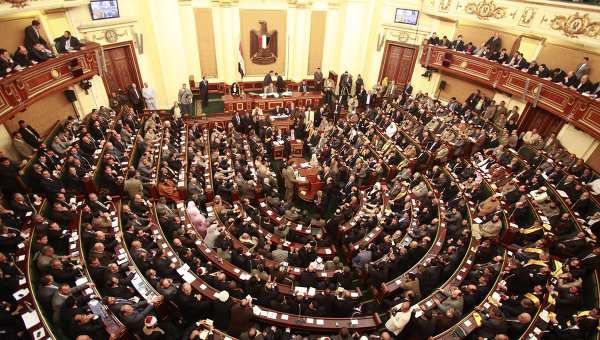The NEOM Summit: More Than Diplomatic Courtesy
When Egyptian President Abdel Fattah Al-Sisi met Saudi Crown Prince Mohammed bin Salman in NEOM last week, the ceremonial handshakes and warm embraces concealed a geopolitical shift in Middle Eastern politics. After Netanyahu’s controversial announcement of the Zionist vision of Greater Israel, the two strongest players in the Middle East have no choice but to face their common enemy together.
The stakes could not be higher. With Israel’s far-right government openly discussing the “voluntary migration” of Palestinians from Gaza—a euphemism for ethnic cleansing—and reportedly establishing a government agency to facilitate this process, the Arab world faces its most existential threat since 1948. The systematic destruction of Gaza—where approximately 62.2% of all buildings have been damaged or destroyed—represents not merely a humanitarian catastrophe but an assault on Palestinian existence itself.
In this context, the emerging Cairo–Riyadh axis represents more than diplomatic posturing—it constitutes the most credible deterrent to Israeli expansionism since the 1973 war. Their combined leverage—military, economic, and diplomatic—creates a counterweight that could finally force Israel to calculate costs rather than assume impunity.
The Military Equation: Deterrence Through Strength
The combined military capabilities of Egypt and Saudi Arabia present a formidable challenge to Tel Aviv. With nearly 700,000 active troops—more than three times Israel’s 169,500—the Egyptian–Saudi alliance could fundamentally alter Israel’s security calculations. Egypt’s combat experience in Sinai counterinsurgency operations and Saudi Arabia’s advanced weapons systems (including F-15SA fighters and Patriot missile batteries) create complementary capabilities that extend beyond mere numbers. Egypt’s control of the Suez Canal and Saudi Arabia’s command of the Bab el-Mandeb Strait give them control over critical maritime chokepoints. Joint naval exercises and integrated command structures—already underway through Red Sea security initiatives—demonstrate growing military coordination that directly counters Israel’s “periphery doctrine” of dividing Arab states.

Beyond conventional forces, both nations possess leverage that does not appear in traditional military assessments. As General (ret.) Ahmed Abdel Rahman, former Egyptian military strategist, noted: “Israel has long relied on Arab fragmentation. A unified Egyptian–Saudi command structure eliminates that advantage and creates deterrence through undeniable strength.”
Economic Weapons: The New Battlefield
The true revolution in Arab leverage emerges not from military might but from economic power. Saudi Arabia’s role as the world’s largest oil exporter—with production capacity exceeding 9 million barrels per day—represents a weapon more potent than any missile. While direct oil embargoes seem unlikely given economic interdependency, targeted energy diplomacy could gradually isolate Israel economically. With combined sovereign wealth funds approaching $1 trillion, Egypt and Saudi Arabia possess unprecedented financial leverage. Divestment from companies supporting Israeli settlements, restrictions on technology transfers, and alternative financing mechanisms for Palestinian development could create tangible pressure.
The most significant shift appears in diplomatic alignment. The days of empty condemnations are ending, replaced by concrete actions. Both nations have intensified efforts to hold Israel accountable through international institutions:
- Supporting South Africa’s case at the International Court of Justice
- Pushing for ICC arrest warrants for Israeli officials
- Documenting war crimes for UN mechanisms
Multilateral Coordination
Rather than acting unilaterally, Egypt and Saudi Arabia are building broader coalitions:
- Joint Arab League positions with enforceable resolutions
- Coordination with emerging powers like China and India
- Engagement with European partners dissatisfied with U.S. bias
Despite this convergence, significant obstacles remain. Saudi Arabia’s interest in eventual normalization with Israel (contingent on Palestinian statehood) sometimes conflicts with Egypt’s immediate security concerns about Israeli expansionism. Both nations face economic challenges that limit how aggressively they can confront Israel without triggering backlash from Western partners. Ongoing conflicts in Yemen, Syria, and Sudan divert resources and attention from the Palestinian cause.
The Path Forward: Concrete Steps Toward Liberation
For this alliance to achieve its potential, several actions appear necessary:
- Mutual Defense Agreement– A formal security pact specifically protecting against Israeli territorial expansion.
- Economic Integration– Preferential trade terms for Palestinian goods; sanctions against settlement products.
- Diplomatic Unity– Coordinated voting in international organizations; joint referral of Israeli officials to the ICC.
- Cultural Assertion– Joint media initiatives challenging Western narrative dominance.
Conclusion: The Dawn of Strategic Assertiveness
The emerging Cairo–Riyadh axis represents the most significant shift in Middle Eastern geopolitics in decades. By combining Egypt’s military strength and strategic position with Saudi Arabia’s economic power and diplomatic influence, this partnership creates a counterweight to Israeli expansionism that simply did not exist five years ago. As Israeli officials openly discuss absorbing Palestinian territory and displacing populations, this alliance serves notice that the era of Arab acquiescence is ending. Their power derives not from confrontation but from undeniable leverage—the ability to make Israel pay tangible costs for continued occupation and aggression. The path forward requires moving beyond symbolic unity to concrete action. By leveraging their combined strengths while centering Palestinian agency, Egypt and Saudi Arabia can transform the regional balance of power. In doing so, they defend not only Palestinian rights but Arab sovereignty itself against an expansionist threat that ultimately targets the entire region.
As President Al-Sisi stated during the NEOM meeting: “Our security is inseparable from Palestinian liberation. What happens to Palestine today will happen to Egypt tomorrow, and to Saudi Arabia the day after.” In that warning lies the fundamental truth driving this emerging alliance—and the source of its potential power.
Dr. Mohamed El-Seidy – EgyptAir pilot, education entrepreneur, and member of Egypt’s Coordination Committee of Parties’ Youth Leaders and Politicians (CPYP)


